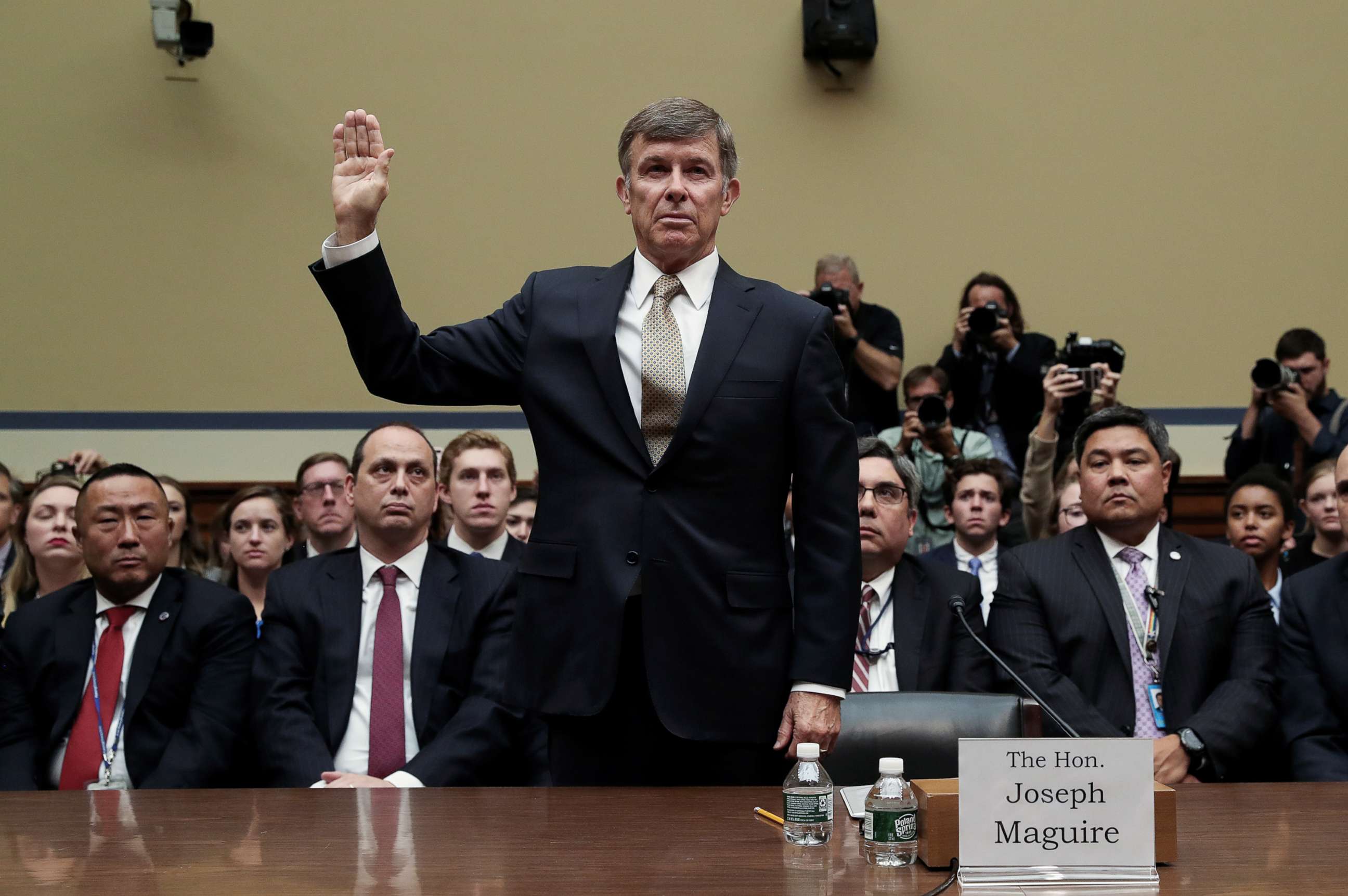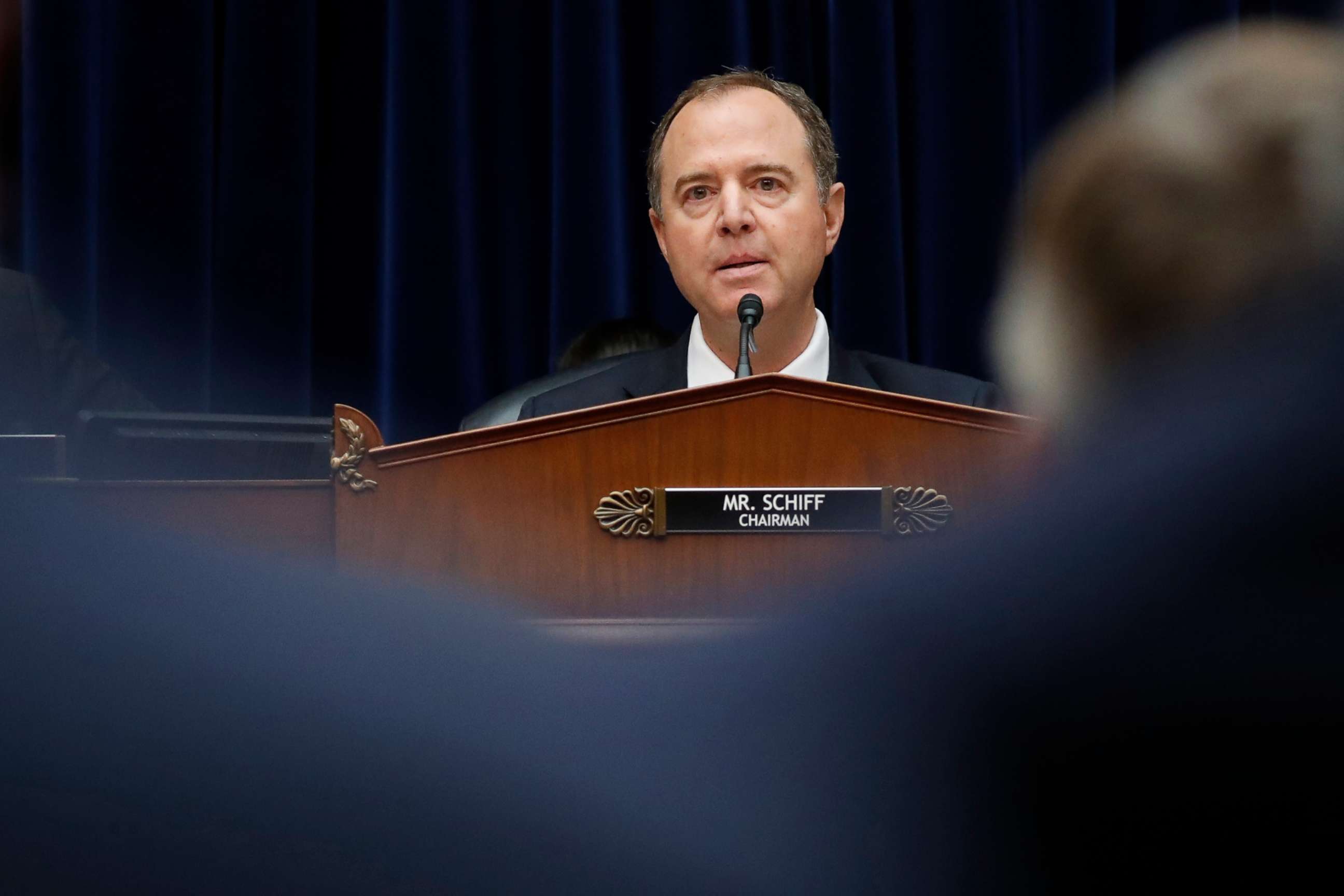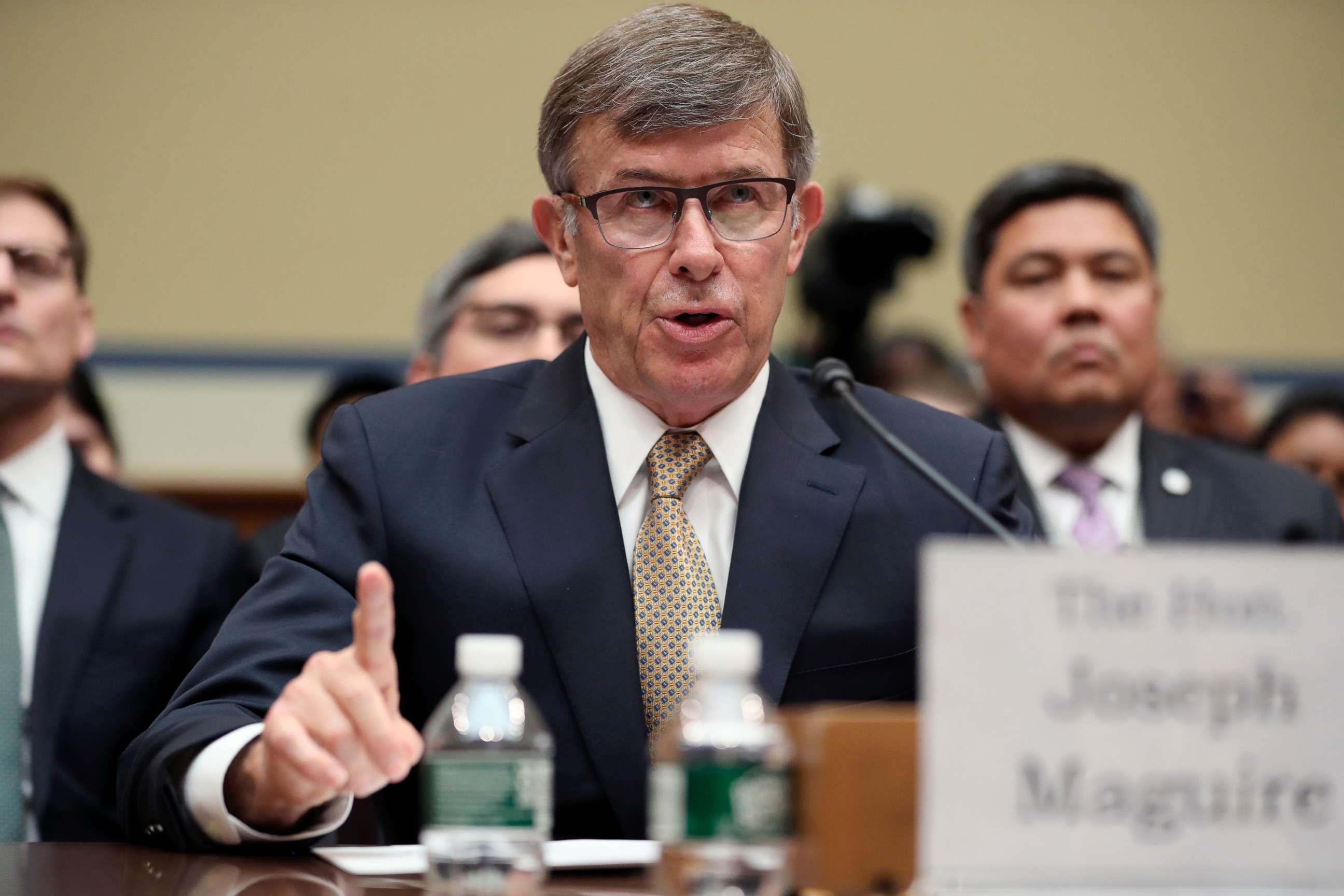6 key takeaways from top intel official's testimony on whistleblower complaint
The nation's top intelligence official faced tough questions for hours on Capitol Hill Thursday over his handling of the whistleblower complaint centered on President Donald Trump's phone call with Ukraine's president that has triggered a political firestorm.
Acting Director of National Intelligence Joseph Maguire defended both the whistleblower and his own initial refusal to turn the complaint over to Congress, an action Democrats say violated the law.
Democrats say the affair is grounds for impeachment because the call shows Trump tried to persuade a foreign leader -- Ukraine's president -- to interfere in a U.S.election by asking him to investigate a political opponent, former Vice President Joe Biden.
Trump has denied doing anything improper.

Here are 6 key takeaways from Maguire's testimony before the House Intelligence Committee.
Unprecedented
Maguire's testimony characterized the scope of the national security whistleblower complaint regarding President Trump's July 25 phone call with Ukranian President Volodymyr Zelenskiy:
“I believe that this matter is unprecedented,” Maguire said off the bat.
“I believe everything here is totally unprecedented,” Maguire quickly emphasized a short time later.
"I want to say once again, I believe that the situation we have and why we're here this morning is because this case is unique and unprecedented," Maguire underscored as the hearing proceeded.
Maguire was grilled by Democrats, who worked to defend the credibility of the whistleblower's complaint and press the acting-director on the prolonged and legal process surrounding the matter, while Republicans defended Maguire's own credibility and decision-making – and trumpeted a memo of the call they said "debunked" the whistleblower's claim that President Trump made a "nefarious promise" to Zelenskiy.
'Executive privilege'
Even though Maguire conceded it could be the first case where a whistleblower's complaint was initially withheld from Congress, he defended his decision to wait until Wednesday to turn over the whistleblower complaint to Congress, citing "matters of executive privilege."
"I am not authorized as the director of national intelligence to waive executive privilege," Maguire explained.

"Regardless of whether it's found credible or incredible, you're aware the complaint is always given to our committee. Are you aware of that?" Chairman Adam Schiff, D-Calif., asked.
"Every previous whistle-blower complaint that was forwarded to the intelligence committee involved a member of the intelligent community and an organization under which the director of national intelligence had authority and responsibility," Maguire countered, arguing the subject of the complaint – the president – is not under the purview of the intelligence community inspector general.
"I was endeavoring to get the information to you, Mr. Chairman, but I could not forward it as a member of the executive branch without the executive privileges being addressed," Maguire continued. "This has never happened before."
Man in the middle
Maguire, who took over as acting Director of National Intelligence 23 days after Dan Coats resigned July 28, comes across as a man caught in the middle - even appearing to suggest there were other candidates more qualified to do his job.
"I'm not political. I'm not partisan, and I did not look to be sitting here as the acting-Director of National Intelligence," he said. "I thought that there were perhaps other people who would be best and more qualified to do that. But the president asked me to do this and it was my honor to step up."
'Urgent concern'
Maguire volunteered he "realized full well the importance of allegations" and testified that the White House did not direct him to withhold information.
But he said his office agreed with White House counsel that the allegation of wrongdoing did not meet the legal criteria of "urgent concern" after he "consulted" with the White House counsel and "eventually" with the Department of Justice Office of Legal Counsel.

Asked by Rep. Jim Himes, D-Conn., whether he had discussed the whistleblower's complaint with President Trump, Maguire demurred, citing the "privileged" nature of his contacts with the president.
"My conversations with the president, because I'm the director of national intelligence, are privileged and it would be inappropriate for me -- because it would destroy my relationship with the president on intelligence matters -- to divulge any of my conversations with the president of the United States," he said.
Maguire, however, credited Trump for ultimately releasing a memo Wednesday detailing his conversation with Zelensky.
"I worked with the [White House] Office of Legal Counsel for the past several weeks to get resolution on this. It's a very deliberate process," Maguire stressed.
He testified that once the president released the reconstructed transcript of his call with the president of the Ukraine, the White House could no longer claim executive privilege.
"That is when I was free to be able to send the complaint to the committee," he said.
But Maguire also defended the anonymous whistleblower.
"I think the whistle-blower did the right thing," Maguire testified. "I think he followed the law every step of the way."
A classified copy of the whistleblower's complaint was shared with the Intelligence committees Wednesday and a redacted version was released publicly Thursday before the hearing.
The 'leaks'
Rep. Devin Nunes, the top Republican on the committee again showed why he is known around the Capitol as the president's pit bull.
Repeating the president's mantra, Nunes called the matter a "hoax" and accused his Democratic colleagues of being intent on going after the president, charging they are simply seeking a public spectacle.
Nunes didn't seem to ask a single question on the substance of the complaint. Instead he focused on the whistleblower process, pushing Maguire on the "leaks" that led to the first media reports of the complaint. Nunes wondered whether Maguire believed the leaks had come from inside the intelligence community.
"Did anybody, you or anybody in your office, leak this to the Washington Post or NBC News?" Nunes, R-California, asked.
"Ranking member, I lead the Intelligence Community. We know how to keep a secret," Maguire responded. "As far as how that got into the press I really don't know. I know it's all over the place. It's been reported by different media for the past several weeks. Where they get their information from, I don't know."
Maguire noted that White House officials with the National Security Council were also on the call, and that State Department officials were also briefed on the call.
Nunes argued that the White House "probably didn't leak this out."
"Is it normal for the President of the United States to have their conversations leak out? This is the third time," Nunes said.
"I wouldn't say the ‘White House.' But there are individuals within the White House that may or may not," Maguire answered.
As Nunes concluded his questions, he gave some unsolicited advice to Maguire.
"Be careful what you say because they're going to use these words against you," Nunes warned.
'Guiliani's role'
Rep. Mike Quigley, D-Ill., pushed Maguire for his thoughts on the actions and role of the president's personal lawyer, Rudy Giuliani, as described in the complaint, in which the whistleblower calls him "a central figure" in the matter and relays concern from multiple U.S. officials over Giuliani's "circumvention of national security decision-making processes to engage with Ukrainian officials and relay messages back and forth between Kyiv and the President."
"What is your understanding of what Mr. Giuliani's role is?" Quigley asked.
Maguire referred questions to the White House, and said he had no knowledge of whether Giuliani does or doesn't have the relevant security clearance to interact with foreign leaders on the president's behalf.
"My only knowledge of what Mr. Giuliani does, I have to be honest, I get from TV and the news media," Maguire said. "I'm not aware of what he does in fact for the president."
He also declined to answer questions about whether he thought Giuliani's alleged actions were criminal.
ABC News' Mary Bruce, Ben Siegel, Lucien Bruggeman, Pierre Thomas and Justin Fishel contributed to this report





